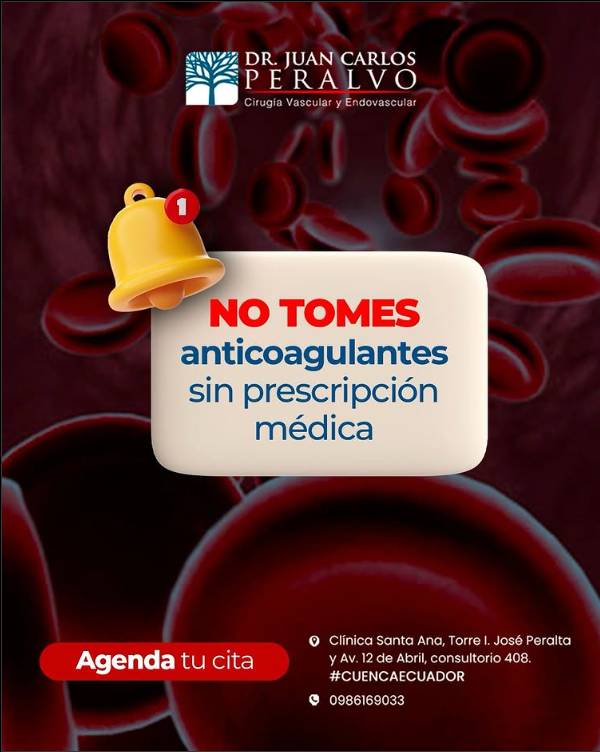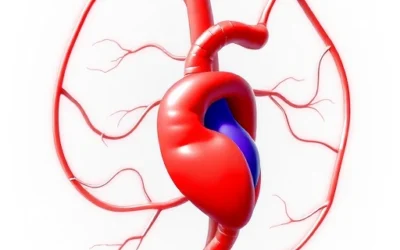
Anticoagulants are essential medications for preventing and treating blood clot-related disorders. However, using them without medical supervision can be extremely dangerous. In this article, Dr. Juan Carlos Peralvo, a specialist in Vascular and Endovascular Surgery in Cuenca, Ecuador, explains why you should not take anticoagulants without a medical prescription.
What are anticoagulants and what are they used for?
Anticoagulants are medications that reduce the blood’s ability to form clots. They are commonly used to prevent or treat conditions such as:
- Deep vein thrombosis (DVT).
- Pulmonary embolism.
- Stroke (CVA) caused by blood clots.
- Atrial fibrillation.
- Prevention of complications after certain surgeries.
Risks of taking anticoagulants without a medical prescription
Taking anticoagulants without proper guidance can lead to serious complications, such as:
- Internal bleeding: Bleeding in vital organs such as the brain or digestive system.
- Difficulty controlling wounds: Minor injuries can become serious due to difficulty stopping bleeding.
- Interaction with other medications: It can enhance or reduce the effect of other drugs.
- Complications in surgical procedures: Risk of excessive bleeding during or after surgery.
When are anticoagulants necessary?
The use of anticoagulants should only be prescribed by a specialist after a thorough evaluation of each patient. Diagnostic studies such as Doppler ultrasound and angiography are essential to determine if a patient requires this type of treatment.
💡 Schedule your chttps://juancarlosperalvo.com/contactoonsultation here
Important tips for using anticoagulants:
- Do not self-medicate.
- Strictly follow medical instructions.
- Inform your doctor about any other medications you are taking.
- Attend regular medical check-ups to adjust doses if necessary.




